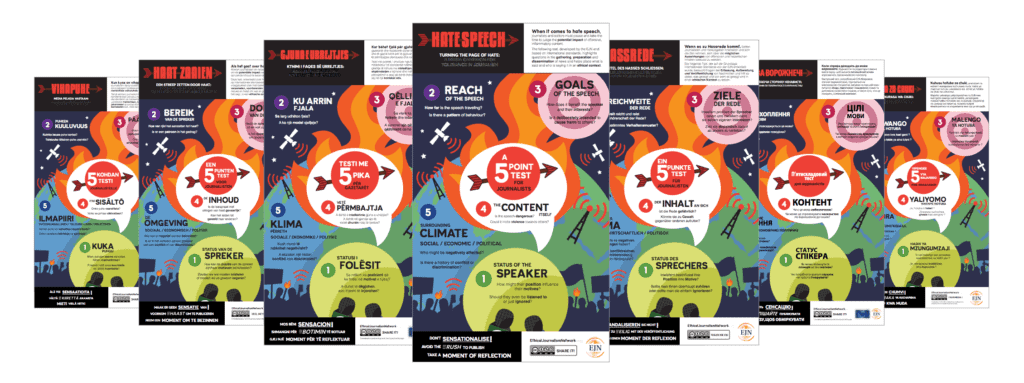The American University in Cairo, Egypt Media Development Program, and Ethical Journalism Network launched a Glossary of Hate Speech in Egyptian Media to help media identify hate speech and deal ethically with dangerous words and images at the Arab Reporters for Investigative Journalism conference in Jordan on 2 December 2017.
Since 2011 Egypt’s political upheaval has coincided with hate speech in media becoming increasingly used to pursue cultural, sectarian and political agendas, as well as to discriminate against activists and those wanting to participate in political debate and civil society.
In the absence of agreement on what should be defined as hate speech and how media should approach the problem, the EJN and EMDP partnered with the American University in Cairo’s Department for Journalism and Mass Communication to create a glossary of hate speech in Egyptian media as a starting point for the development of guidelines and standards.
The glossary begins by providing background on how Egyptian law and the country’s constitution define hate speech, as well as relevant universal human rights principles. The guide provides examples of where media have fallen short. But it also illustrates good practice and provides guidance to help journalists and media report on hate speech.
The Hate Speech Glossary for Egyptian Media, which has also been launched in Cairo has been published as a booklet with the plan to expand it and turn it into an online tool in 2018.
Contact the EJN if you would like to be involved in the next stage of the glossary or if you would like help the EJN produced a glossary on hate speech in your country.
Hate Speech
The dangers of hate speech in journalism are well known and can have tragic consequences. In response, the Ethical Journalism Network launched the Turning the Page of Hate campaign in 2014 to mark the 20 year anniversary of the Rwandan genocide. As part of the campaign, the EJN create a 5-point test for journalists to use to identify hate speech.
Find our more about the EJN test for hate speech
For more context and details about how to use the five-point test for hate speech, read our report. The EJN’s 5-point test infographic has been translated into over 20 languages. Download it and use it in your newsroom. Contact us if you would like to support the campaign by translating the test into more languages.
